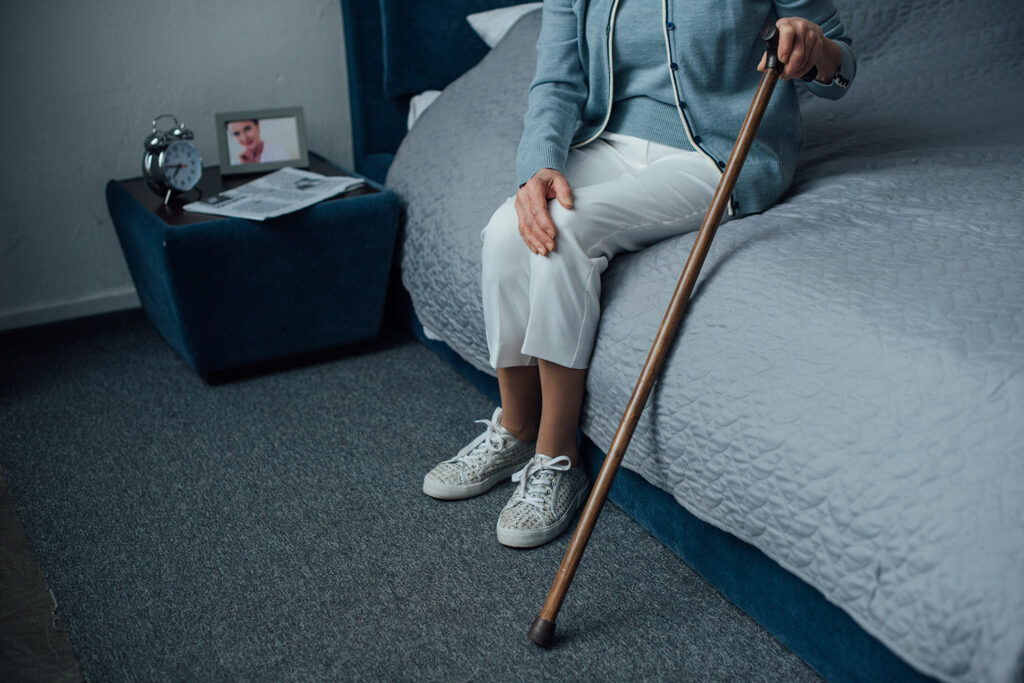Adapting Your House When You Have Rheumatoid Arthritis
Living with rheumatoid arthritis can be challenging, but there are steps you can take to make your daily life more comfortable and safe.
One crucial aspect of managing this condition is adapting your home to accommodate your unique needs.
Watch the video: Adapting Your House When You Have Rheumatoid Arthritis
The Role of Occupational Therapists
Occupational therapists are pivotal in helping rheumatoid arthritis patients adapt their homes for comfort and safety.
Occupational therapists undergo extensive training that allows them to assess an individual’s physical abilities, limitations, and daily routines.
When you collaborate with an occupational therapist, you obtain personalized recommendations for home modifications that suit your specific needs. Additionally, they can assist you in identifying assistive devices that have the potential to enhance your independence and alleviate pain.
Choosing a professional with SCEM (Specialty Certification in Environmental Modification) or CAPS (Certified Aging-in-Place Specialist) credentials is essential as it guarantees they specialize in home adaptations.
Ask your rheumatologist or primary care physician to recommend a qualified occupational therapist (OT) who can help make your home life safer and more comfortable. Additionally, you can try searching for a skilled OT near you using an online directory such as Find and Occupational Therapist.

Tips & Guidelines for Adapting Your Home
Adapting your home doesn’t need to cost thousands of dollars or require extensive remodeling. Small changes can have a significant positive impact on your everyday home life.
Kitchen Modifications
- Cookware: Opt for non-stick surface pans with double handles that are easier to clean and lift, reducing the strain on your joints.
- Appliance Placement: Keep frequently used appliances at counter level to avoid bending or lifting heavy objects. This simple adjustment can significantly reduce joint stress.
- Seating: While working in the kitchen, consider sitting on a stool or chair to avoid unnecessary joint stress.
- Electric Kitchen Gatgets: Use electric can openers to make meal preparation more manageable.
- Cabinet Organization: Consider installing roll-out shelves or a lazy Susan in your cabinets to avoid reaching deep into them.
Bathroom Modifications
- Non-Slip Surfaces: Install non-slip mats in the shower, bathtub, and bathroom floor to prevent slips and falls.
- Toilet Seat Height: Consider raising your toilet seat or using a toilet seat attachment for easier use.
- Grab Bars: Install grab bars on the walls in the shower and near the toilet to provide support when standing or moving around.
- Shower Bench: Keep an adjustable transfer bench next to the bathtub, and use a shower seat inside the shower to reduce the risk of falls.

Living Area Modifications
- Lighting: Invest in touch or motion sensor lamps to illuminate your path as you move around the house. Proper lighting can prevent accidents.
- Cord Placement: Tuck electrical cords away to prevent tripping hazards.
- Rug Safety: Add non-slip strips to the back of area rugs to keep them in place and prevent slipping.
- Door Handles: Replace traditional doorknobs with lever handles to make it easier to open doors and reduce strain on your hands and wrists.
Bedroom Modifications
- Bedroom Location: If possible, consider moving your bedroom downstairs to avoid having to climb stairs regularly.
- Bed Height: Raise your bed to a comfortable height, making it easier to sit and get out of bed.
- Quality Bedding: Invest in a quality mattress and pillows to ensure a good night’s sleep and minimize discomfort.

Living with rheumatoid arthritis presents unique challenges, but with the proper home modifications and professional guidance, you can greatly improve your quality of life.
Occupational therapists and specialists in home adaptations, such as CAPS or SCEM-certified experts, can help you create a home environment that is safe, comfortable, and tailored to your needs.
These simple modifications will help you regain a sense of independence and reduce the impact of rheumatoid arthritis on your daily life.





